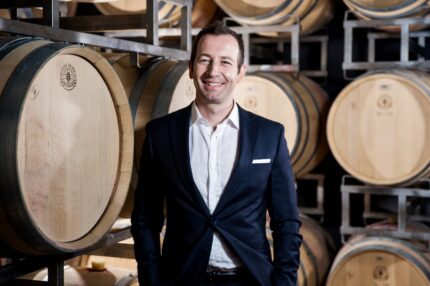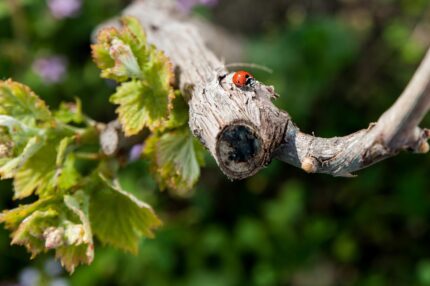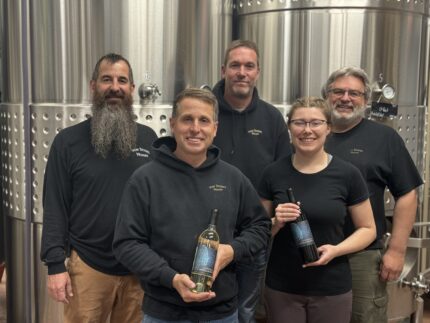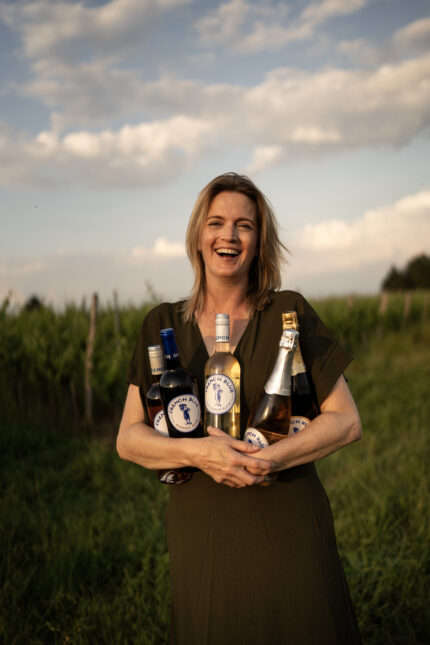
The process at Firriato Wine Company begins with terroir, the identity of the native varietals used, and a respect for nature. I was invited to meet with COO Federico Lombardo di Monte Iato who talked about how the vineyards are a mosaic of the “continent” of Sicily reflecting the identity of each vine and the uniqueness of each place.
The History
Federico, who incidentally holds the title of Count, is the son-in-law of Salvatore and Vinzia di Gaetano, founders of the Firriato wine company, established in 1984. He is married to their daughter, Irene, who is chairwoman, for this second generation, family-owned winery.
The name Firriato comes from the rural material culture of western Sicily, where the term was used to indicate the area close to the main house. It is a well-defined and protected area where the most valuable crops were planted.

The company has 470 hectares of vineyards in four estates off the original production area in Etna and the Aegadian Islands in Trapani as well as Cavanera on the volcano and Calamoni on Favignana. They talked about three terroirs – mountain, countryside and marine. The winery is certified as 100 percent organic, it is the first zero impact winery in Italy and was one of the first carbon neutral wineries in the world.

Federico talked about how Sicily is like a wine continent as it has 12 different orders of soil, 80 native varietals and 13 indigenous varietals accordingly to DOC regulations. He described the region as “an outdoor viticultural lab on one small island.”
His goal is to explore Sicily’s various soil types and climatic conditions to create nuanced wines that are sustainable and protect biodiversity.
Firriato is growing a wide range of grapes from the region, including Nero d’Avola, Perricone, Nerello Mascalese, Zibibbo, Grillo, and Catarratto as well as varietals like Syrah, Cabernet Sauvignon, Merlot, Pinot Noir, and Chardonnay.

The Influence of Mount Etna
Mount Etna is one of the most active volcanoes in the world. Federico explained how it is an evolution of different volcanos over time and it is the most elevated mountain in Sicily. The different climates — xeric, Mediterranean, Mountain, Alpine – result in volcanic soils rich in complex minerals.
Firriato has 207 acres of vineyards in 12 different subzones called Contrada, which are planted at 1,800 to 3,000 feet on the Northern side of volcano. These different single vineyards, which are certified pre-phylloxera vineyards, are about 150 years old. They also have an experimental vineyard containing unknown varietals. The first vintage was back in 1994.
The Wines

- 2020 Firriato “Le Sabbie dell’Etna” – literally meaning the sands of Etna you literally can taste the salinity in this wine from the volcanic soil. It’s made from 60 percent Carricante and 40 percent Catarratto grapes. I tasted minerality, stone, salt, tree fruit, citrus and it had nice acidity and balance. It had also had some complexity.
- 2020 Firriato Le Sabbie Dell-Etna Rosato – made of 100 percent Nerello it reflected the sandy volcanic soils. A delicate pink in the glass, it had intensity on the nose, and you could first taste raspberry and pomegranate and then the minerality set in with apple, cherry, and a nice creaminess.
- 2020 Firriato Le Sabbie Dell-Etna – translating to “red, fire and passion” this wine is made from Nerello Mascalese and Nerello Cappuccio. The minerality shines through here again with balanced notes of cherry, violet, licorice, and pepper.

I know we hear the phrase “sense of place” often in the wine world, but clearly, there is a delicate balance between the quality of Firriato Wines and the uncertainties of operating in the shadow of a live volcano. And it’s a symbiotic relationship lasting for three decades based on respect and honor of the land.



